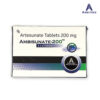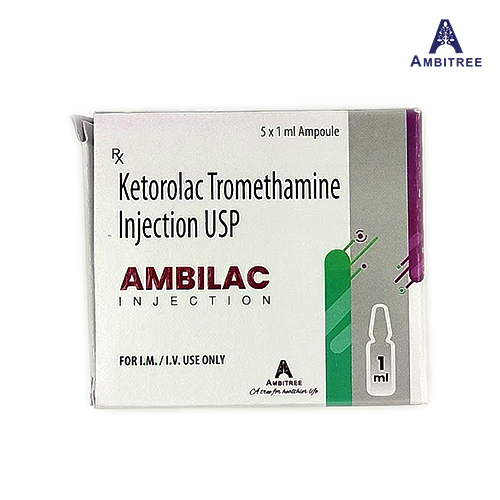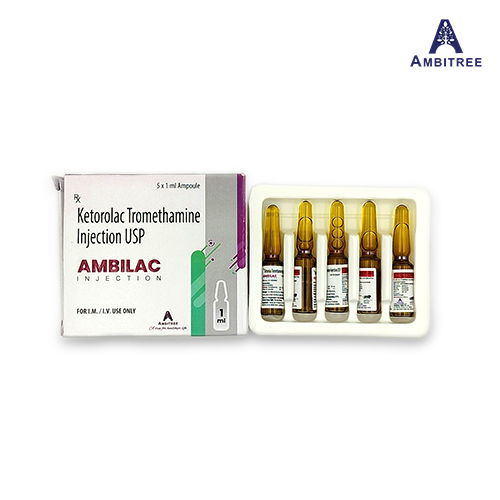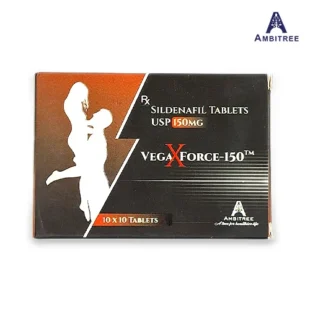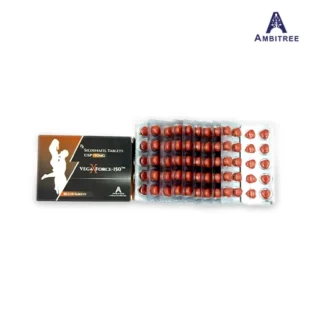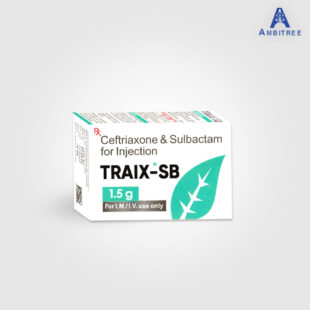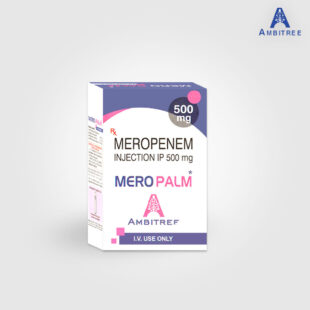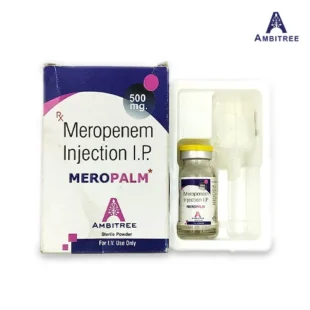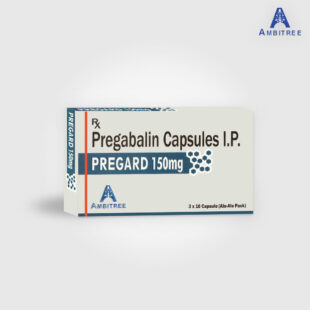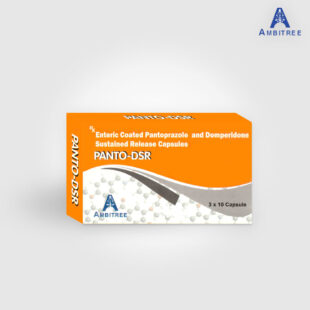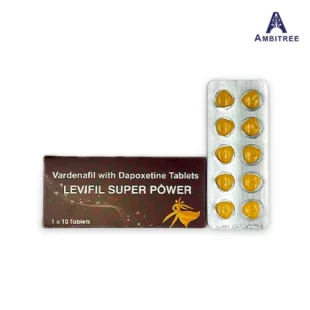- Your cart is empty
- Continue Shopping
Ambilac Injection
Ambilac Injection contains Ketorolac Tromethamine, a nonsteroidal anti-inflammatory drug (NSAID) used for short-term management of moderate to severe pain. Ketorolac works by reducing inflammation and blocking the production of certain natural substances in the body that cause pain and inflammation. It is commonly used to relieve pain following surgery or for conditions like kidney stones, arthritis, or other painful conditions where short-term pain relief is needed. Ambilac Injection is administered under medical supervision to provide effective pain relief.
BENEFITS:
- Pain Relief: Provides rapid and effective relief from moderate to severe pain.
- Anti-inflammatory: Reduces inflammation, which can help with pain and swelling in various conditions.
- Post-Surgical Use: Commonly used for short-term pain management after surgeries.
HOW IT WORKS:
Ketorolac Tromethamine: Belongs to the class of nonsteroidal anti-inflammatory drugs (NSAIDs). It works by inhibiting the production of certain natural substances in the body that cause inflammation and pain.
DIRECTIONS FOR USE:
- Administration: Administered intramuscularly (IM) or intravenously (IV) by a healthcare professional.
- Dosage: The exact dosage and frequency depend on the patient’s condition and response to treatment. Follow the doctor’s instructions carefully.
- Duration: Typically used for short-term pain management, usually not exceeding 5 days.
SIDE EFFECTS:
- Common: Nausea, vomiting, dizziness, headache, and pain at the injection site.
- Serious: Severe stomach/abdominal pain, persistent nausea/vomiting, yellowing eyes/skin, dark urine, easy bruising/bleeding, and signs of kidney problems (such as a change in the amount of urine).
Seek immediate medical attention if you experience any severe side effects.
WARNINGS & PRECAUTIONS:
- Contraindications: Avoid use if allergic to ketorolac or other NSAIDs, if you have active peptic ulcer disease, recent or history of gastrointestinal bleeding, or severe kidney disease.
- Consultation: Inform your doctor about any existing medical conditions, especially heart disease, high blood pressure, liver disease, kidney disease, or a history of stomach/intestine/esophagus problems. Provide a complete list of medications you are taking, including supplements.
- Interactions: May interact with other NSAIDs, blood thinners, certain antihypertensives, and corticosteroids. Discuss potential interactions with your doctor.
- Storage: Store at room temperature, away from light and moisture. Keep out of reach of children.
- Dosage Adherence: Follow the prescribed dosage strictly. Do not exceed the recommended dose or duration of treatment. Regularly monitor for side effects and report any unusual symptoms to your doctor immediately.
Note: Always consult your doctor before taking any medication.
Vendor Information
- Address:



